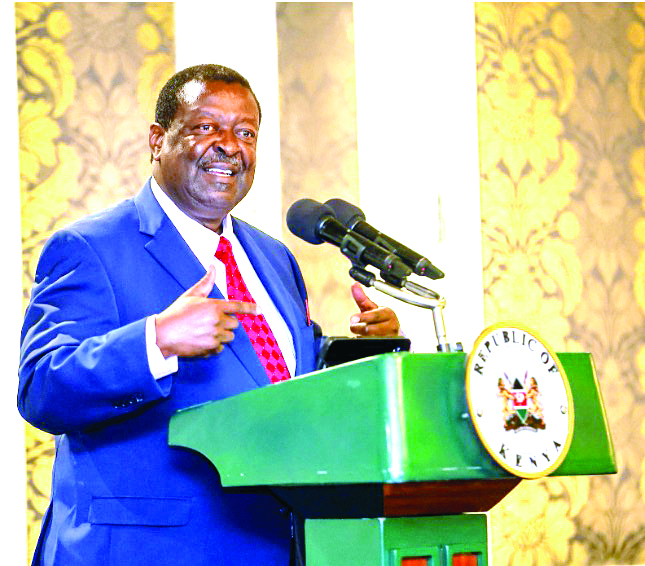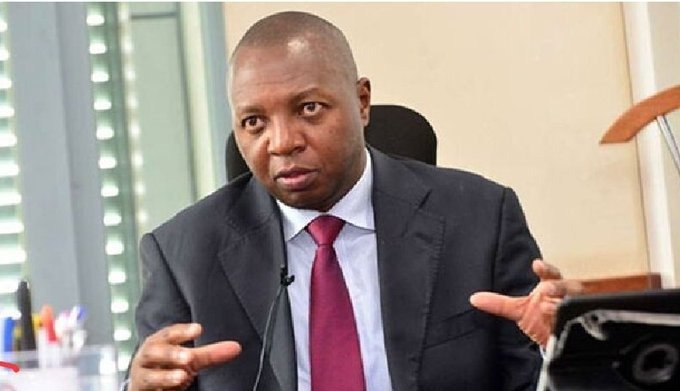KRA gears up for audit as filing of tax returns closes

Kenya Revenue Authority (KRA) will close its books of accounts in the next three days to allow an audit of the country’s most ambitious collection target since independence.
Treasury Cabinet Secretary Ukur Yatani had in a gazette notice shifted the tax target to Sh1.74 trillion from the initial Sh1.71 trillion in the fiscal year ending June, setting an even more ambitious target to help cushion Kenya’s ambitious Sh3.3 trillion budget.
The taxman says it recorded an above-target revenue performance in the first half of the financial year 2021/2022 after collecting Sh976.7 billion against a target of Sh929.127 billion thanks to higher tax compliance. During the first half of the financial year, customs revenue collected Sh355.8 billion against a target of Sh322.7 billion, reflecting a revenue surplus of Sh33.050 billion.
Githii Mburu, KRA Commissioner-General said the authority met the ambitious targets using intelligence and technology which helped to unearth unpaid taxes coupled with voluntary compliance.
“Patriotic taxpayers keen on facilitating national development allowed KRA to collect a surplus of Sh47.532 billion,” he said in the January 2022 statement.
“The good performance was primarily attributable to enhanced compliance efforts by the authority and economic recovery,” Mburu said. By April 2022, the taxman had collected close to Sh1.5 trillion which had been gathered from July 1, 2021, to beat an Sh1.42 trillion collection of the previous year’s goal.
Service public debt
Data shows that Kenya has already spent in excess of Sh840.8 billion to service public debt at a time when the gross domestic product (GDP) is growing at 5 per cent on election jitters and geopolitics.
As the registers await closure, the taxman will hope that he managed to seal more tax loopholes to enable him to meet increased revenue targets, even as the period draws near.
Revenue collections have, however, been on an upward trajectory in the past three years after ramping up collection initiatives.
The taxman has been very busy having changed strategy and is currently banking on technology and intelligence to increase taxes. It has also been on a charm offensive rewarding whistleblowers and giving relief for voluntary disclosures.
This has been driven by the country’s constrained international fiscal space after the Bretton Woods institutions namely the IMF and World Bank highlighted the need for sustained fiscal consolidation to reduce the level of public debt to more prudent levels over the medium term.
But the main challenge will be the change of goal post by the Treasury that raised the target for tax collections for the 2021-22 financial year by Sh33.7 billion and it remains to be seen whether the tax agency will meet its revenue collection target of Sh2 trillion in total collections for the period.
In the 2022/23 budget which was read earlier due to the elections slated for August 9, the government narrowed its fiscal deficit to Sh862.5billion which is 6.2 per cent of the country’s GDP.
Currently, the country’s fiscal deficit stands at Sh1 trillion which is 8.1 per cent of GDP. Speaking in Parliament while presenting the budget, Yatani said as part of its medium-term fiscal deficit policy, the government seeks to reduce the fiscal deficit to Sh634million in the 2025/26 fiscal year.
Some of the new taxation measures this financial year include an 8 per cent levy on cooking gas, raising of excise duty on airtime and data to 20 per cent from 15 per cent, introduction of a 20 per cent duty on fees and commissions earned on loans as well as a 7.5 per cent tax on gambling wins. KRA employees will also start wearing body cameras in the latest bid to curb tax cheating and crackdown on staff bribery that abets tax evasion.
The agency estimates that it loses Sh12 billion every year from excise tax evasion alone, and hopes investments in data and intelligence surveillance will catch more tax cheats.
With the initiatives being put in place, the taxman hopes to collect about Sh2.1 this financial year from Sh1.669 collected in the financial year 2020/21.
To further enhance compliance, the taxman says firms found responsible for tax fraud will have their tax compliance certificates revoked, barring them from running for office in the forthcoming elections, taking loans, or importing commodities until they comply. Philip Muema, a partner at a tax and business advisory firm, Andersen Kenya points out that taxpayers should expect KRA to be more aggressive on wealthy tax evaders in coming months after it announced plans to set up a digital forensic laboratory to mine data from records on taxpayers’ computers and smartphones.
However, Clifford Otieno an Independent Tax Expert says that this move is not the best if proper measures have not been instigated to identify the sort of money that can be taxed.
Hide information
“It is not the best way though some people hide information in their phones if the taxman can find the legal ways of extracting this information in compliance with the Data Protection Law then it will be fine” said Otieno. He argues that in instances where one repays a debt the taxman may view the move a taxable transaction which may not necessarily be the case.
The experts reckon that as more and more companies turn from manual to digital, it is time that KRA also had to shift their ways of doing audits and hence the involvement of ICT teams is already there.
Parag Shah the Head of Advisory at Grant Thornton Kenya notes that KRA should use this where they suspect fraudulent trading or information where they believe a taxpayer is non-compliant rather than doing this to all taxpayers as many of them have evolved over the years to be fairly compliant.














